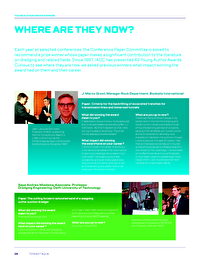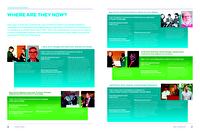J. Marco Groot, Manager Rock Department, Boskalis International
Paper: Criteria for the backfilling of excavated trenches for transmission lines and immersed tunnels
What did winning the award mean to you?
It was absolutely an honour to be selected and to be addressed personally by Mr J.J. DeCloedt, IADC’s President at that time, during the award ceremony. The prize money was appreciated as well.
What impact did winning the award have on your career?
It did not impact my career directly but it certainly emphasised the importance of gaining knowledge and presenting it in articles. There were quite a few occasions, and even many years later, that external contacts referred to the article as being very useful due to its practical information content.
What are you up to now?
I have had many different steps in my career within the marine dredging and construction industry and spend most of my time working abroad on projects, varying from landfalls, port construction and land reclamation whereby rock installation has been the common thread. Looking back at the past 40 years, I feel that all this experience has contributed to becoming a valued professional within the industry. Four years ago, I moved back to the Netherlands and joined Boskalis. In my present position as Manager Rock Department, I am involved with all rock installation projects worldwide.

















